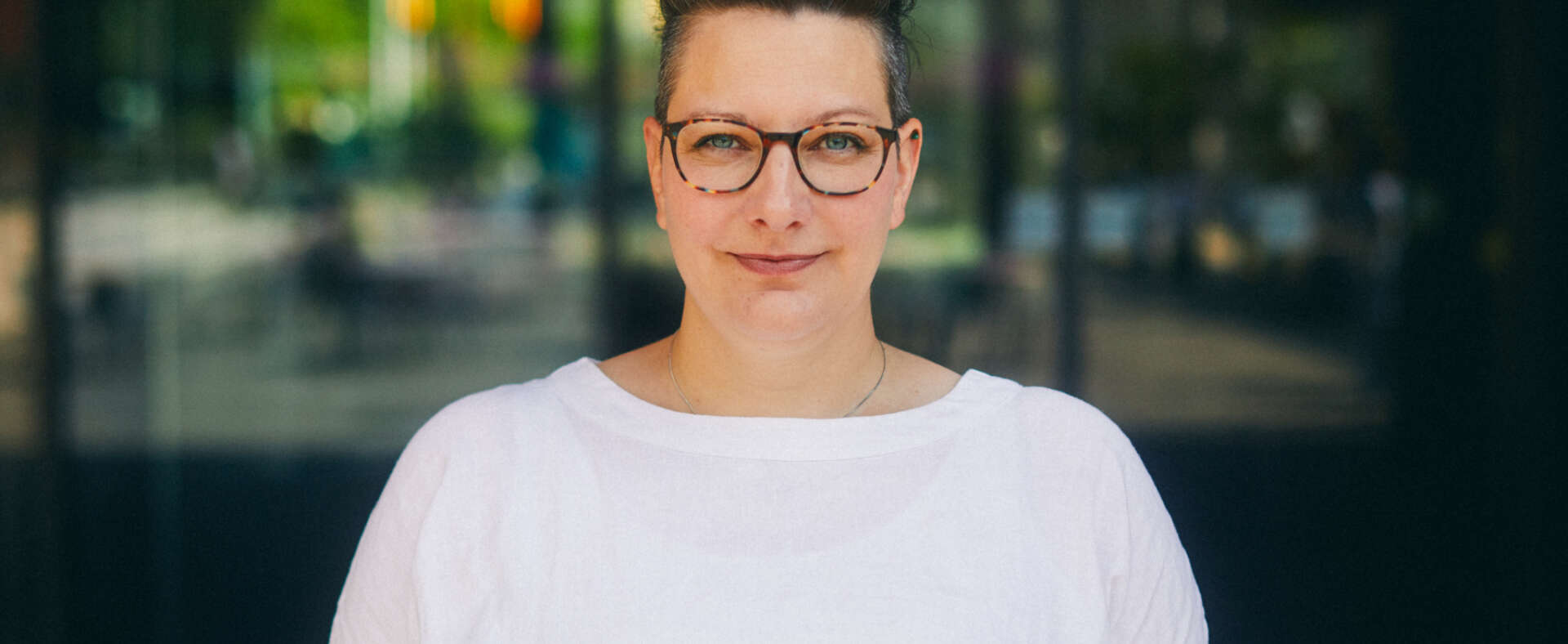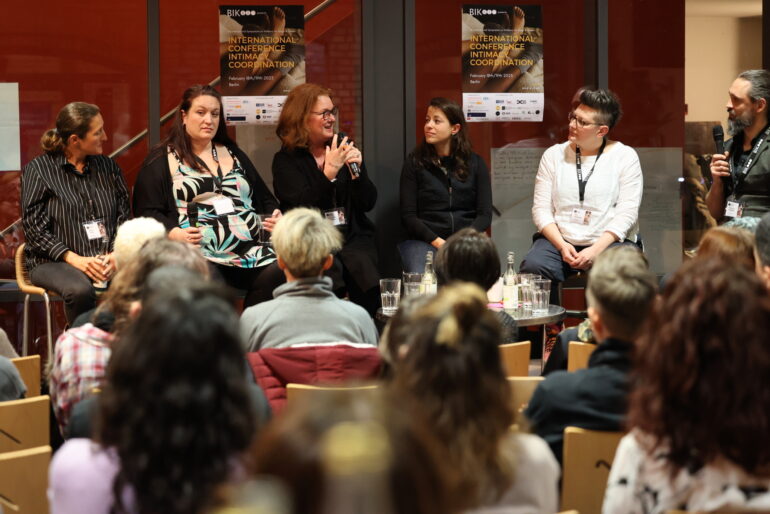
‘Intimacy scenes can be bolder, more detailed, more fun and more diverse than audiences have ever seen before”, says joint-course director and Finnish pioneer Pia Rickman.
The training programme has been specifically designed by Nordic pioneers Pia Rickman and Malin B. Erikson who served as the very first intimacy coordinators in Finland and Sweden respectively, and launched their joint company Nordic Intimacy Coordinators (NIC) in 2019.
Based in London, Finnish-born Rickman both works as an acting coach and intimacy coordinator. Her credits include Netflix’s series The Diplomat, Sky’s Romantic Getaway, and the multi-awarded Finnish films Girl Picture and Tove.
For her part Swedish-born Erikson has worked on some of Sweden’s biggest recent hit series including Netflix’s Snabba Cash, SVT’s Blackwater and TV4/C More’s The Congregation (Knutby).
Faced with the need to serve the industry’s growing demand for qualified intimacy coordinators, they both connected with their US counterpart and leading figure in intimacy coordination, SAG-AFTRA-accredited Amanda Blumenthal (Euphoria, The White Lotus, The Affair) who had devised sought-after training programmes for the Intimacy Professionals Association (IPA).
The IPA and NIC Intimacy Coordinator Training Programme will prepare a group of Nordic trainees to learn the ropes of the fast-growing intimacy coordinator role on both local and international productions.
Among the various topics covered by the programme are the importance of intimacy coordinators and their roles from pre-production to post-production, consent, boundaries and power dynamics, sexual harassment and micro aggressions, local Nordic intimacy guidelines, closed set protocols, working with actors and directors, trauma awareness, equality gaze, communication and conflict negotiation skills, diversity, inclusivity on Nordic screens.
More information: CLICK HERE.
Pia Rickman spoke to us.
How has the profession of intimacy coordinator evolved since 2019?
Pia Rickman: I’d say the biggest change is probably in the attitudes of people - notably producers and directors - who were positive about the role in the first place but now have more experience in engaging with intimacy coordinators and really realise the depth and benefits involved.
We work closely with the director and actors, creating the structure and choreography for intimate scenes on set. These can now be bolder, more detailed, more fun and more diverse than audiences have ever seen before.
We only achieve this through the safety of the framework.
Since 2019, we’ve made significant progress in clarifying our role, and consolidating our work practices. We have standardised the process, notably through risk assessments, nudity clauses, feedback forms, and intimacy protocols covering pre to post-production. All this is key to make sure cast & crew feel safe in their work environment. It’s a key part of sustainability in the industry.
Furthermore, intimacy guidelines that were published in Finland in 2020 have travelled across the Nordic countries and have created awareness together with the work done in each country by the local intimacy coordinators. The guidelines published in Sweden last month are now a next step in supporting the use of qualified intimacy coordinators in the Nordic countries.
Educating the industry and promoting this profession that is still relatively unknown, must be a big part of your job…
PR: My Swedish colleague Malin and I have done various workshops, presentations at drama and film schools, arts organisations and film festivals, and continue to do so. I believe it’s utterly important to create a cultural change, both at grassroots level within acting/filmmaking training institutions as well as in the industry.
Could you discuss how you help establish trust among film workers?
PR: Trusting each other, the structure and the collaboration, unlocks the creativity for both actors and directors. It is essential for any kind of close relationship, and psychological safety is something necessary for that trust to emerge.
Safety is personal, and our experiences with intimacy are unique. In a similar way to violent scenes, intimate scenes require planning, communication, rehearsals and partly creating illusions.
When is the ideal moment to hire an intimacy coordinator and do you work right through post-production?
PR: Intimacy coordinators should be hired early in the pre-production where there is the opportunity to affect the content and scheduling of the scenes. The prep work begins with breaking down the script, having conversations with producers, directors and actors, just like with any other head of department role.
Based on the rehearsals and individual boundaries, we create a risk assessment that involves continuous conversations with other heads of departments and planning around the filming day. The work equally involves advocating for the crew and establishing a structure to help everyone create their best work.
Intimacy coordinators can also be part of the additional dialogue recording in post-production or they can be part of filming promotional material separately.
What are the essential qualities that are required to become intimacy coordinator?
PR: Intimacy coordinator is both a creative and production role and as such it is a demanding head of department role. Intimacy coordinators need to understand the actor’s process and be sensitive to the diverse needs in the room. Ideally, they should have previous experience of working on a film or TV set, as well as additional health & safety training. The qualities appreciated in the role involve calm, energy, empathy, negotiation skills, problem solving and strong organisational skills.
Today, how many intimacy coordinators are there in the Nordics?
PR: We’re in the early stages, and have less than a handful of intimacy coordinators in each Nordic country - sometimes one only.
Yet we’re leading the way in Europe. The demand for qualified intimacy coordinators is growing, now that the production volume is ramping up, and the IC role is better understood and valued, hence the need for our training programme.
We’re hoping to create a close-knit community of professionals that support each other, move freely from country to country, where producers can trust the consistency of the process and protocols.
